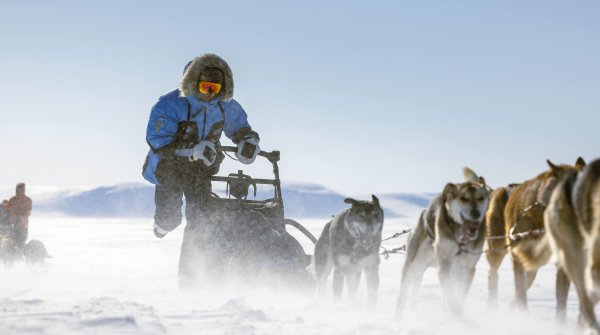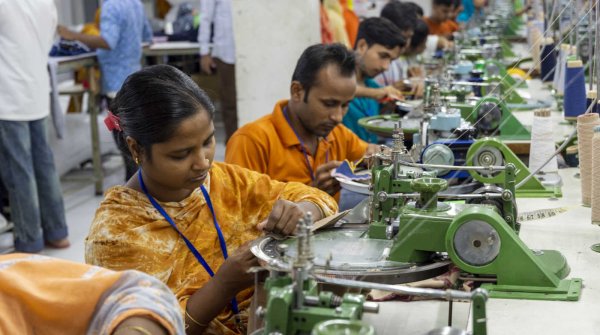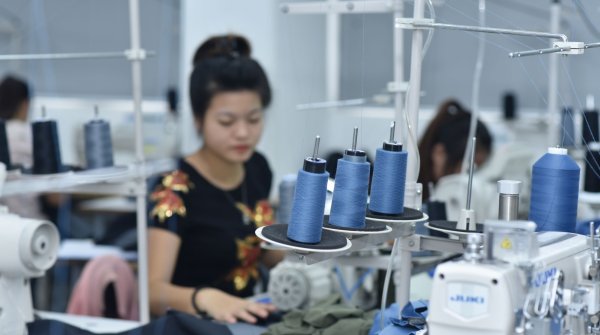
The topic of corporate responsibility covers many areas. What are the most important tasks in your position?
We have divided the CR strategy at Schöffel into four areas: Product, Social, Environment and Sustainable Services. The overriding principle for us is that people are always at the center. We work in pairs on the various CR topics. That's a huge advantage, because in many companies in the textile industry, CR tasks are handled by just one person. My colleague Johanna Winterhalder is primarily responsible for environmental and pollutant management. My focus is on monitoring and improving social standards. For the strategy to be implemented successfully, colleagues in all departments must be committed to the CR goals. This only works if there is a basic understanding throughout the company. This is an ongoing process that we are both working on together.
How has your role as CR manager changed in the company from 2017 to today?
Since this year, we are directly affiliated with the company management with the CR management. Thus, we have an even more direct and strategic influence with our consulting, especially when it comes to topics related to the product. But also with regard to supply chain management, CO2 reduction and other requirements, we must have the appropriate foresight and recognize possible risks at an early stage.
Can you describe, using the example of working conditions, how the control of the Fair Wear Standards works here?
Suppliers and producers with whom we work, all go through a rigorous onboarding process in which we query individual requirements. We relied on long-term partnerships and are personally on site with producers at least twice a year with members of the company management. We use Fair Wear audits to monitor working conditions. It is the external and independent control authority for us, which checks the specifications in personal discussions with the workers on site. In addition, we permanently have three employees in Asia who, in addition to quality controls, also keep an eye on the Fair Wear Standards and report violations to us. One thing has been confirmed over the years: The better the working conditions, the better the quality of the manufactured products.

How does Schöffel see the developments to the planned supply chain set?
.It is a good initiative, which finally sets the right signals. As it is planned at the moment, it targets companies from 500 employees. We would not fall under this at all, although we already meet the planned requirements. A corresponding law would in any case ensure greater equality of competition in the textile industry. In addition, we show as a medium-sized company that you can very well meet the requirements regardless of the company size.
As a bluesign® system partner, Schöffel must comply with strict limits of pollutants and chemicals in production. How can this be controlled?
Basically, there are legal limits for pollutants and chemicals in all textiles by the REACH regulation. The limits of bluesign® are much lower and the requirements are correspondingly stricter. All our textiles meet these strict requirements. Control is carried out by testing for harmful substances on the finished product directly in Asia. Here, the garments are broken down into their components in the laboratory and tested for the limit values.
In the Schöffel Sustainability Report of 2019, the goal is: "To replace perfluorinated and polyfluorinated chemicals, or PFCs for short, in the collections with risk-free alternatives." What is the current status here?
We are completely PFC free in the Schöffel brand. Only for the manufacture of the Goretex membrane in the high-end jackets and pants PFC is still used. The DWR is also PFC-free here. Basically, there is still a great need to educate consumers on the subject of PFC.
In what way?
.
We can produce jackets without PFC in the material and coating, which meet the normal requirements for functional outdoor clothing. The consumer should only be aware that he must re-impregnate such jackets after several washes. If you want to have this done professionally, use our Service Factory for this purpose. Then it is also ensured that a PFC-containing impregnation is not sprayed onto the PFC-free jacket afterwards at home. The biggest contribution to sustainability is to wear the garments as long as possible, take good care of them and repair any damage professionally. Our Service Factory also helps with this.

Social responsibility is part of the CR strategy. This includes living wages for workers in the factories. What measures does Schöffel take in this regard?
In many countries there are statutory minimum wages, but they often do not cover the cost of living. In our "Living Wage Project", we have analyzed the wage structure in the factories with local partners and determined a living wage level in many discussions with the workers, management and works councils. Since we are never the only customer in a factory, cooperation with other Fair Wear brands is very important in this area. Fair Wear has also developed a product calculation tool that incorporates all wage parameters. It is important for the consumer to understand that we do not pay the wages, but a price for the production of the products. That's why a constant exchange with the employees on site, the management of the factories and the workers to control the wage level is essential. The fact that we received the Fair Wear Leader status for the sixth time in a row this year confirms that we are on the right track. Particularly as the requirements are constantly increasing.
What are the future goals and biggest challenges for 2021 in the field of CR?
.
We will probably not be able to grasp the full impact of the Corona pandemic until the end of 2021. Especially with regard to the control of social standards, we will have to make an enormous additional effort. Another goal of our CR strategy is to reduce CO2 emissions at all levels: Production, supply routes, and within the company itself.

 PromotionOpens lens – tools for true impact
PromotionOpens lens – tools for true impact
- Awards
- Mountain sports
- Bike
- Fitness
- Health
- ISPO Munich
- Running
- Brands
- Sustainability
- Olympia
- OutDoor
- Promotion
- Sports Business
- Textrends
- Triathlon
- Water sports
- Winter sports
- eSports
- SportsTech
- OutDoor by ISPO
- Heroes
- Transformation
- Sport Fashion
- Urban Culture
- Challenges of a CEO
- Trade fairs
- Sports
- Find the Balance
- Product reviews
- Newsletter exclusive area
- Magazine


